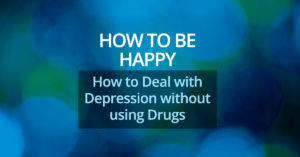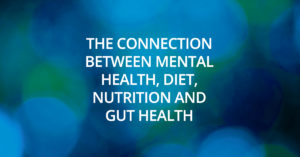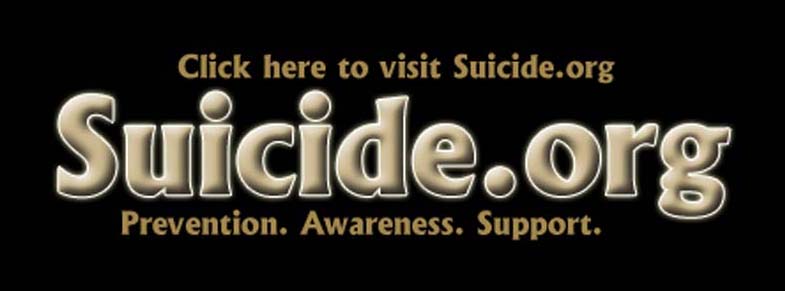DISCLAIMER: THIS IS NOT MEDICAL ADVICE! We do not employ doctors or licensed medical professionals, so we do not provide medical advice. Nothing presented here is a substitute for the advice of a DOCTOR or other licensed health care provider. Never stop, start or add medications or supplements to your health or mental health care regime without first checking for interactions or other problems, and thoroughly researching the substance. Before you employ any information here, consult your health care professional. No information here is the result of valid clinical trials.
Crisis and Safety Planning
URGENT CRISIS SUPPORT
https://www.nowmattersnow.org/help-line
CRISIS PLANNING SUPPORT
https://www.nowmattersnow.org/wp-content/uploads/2018/10/1.-NowMattersNow.org-Safety-Plan-Guide-Website-Version.pdf
I DON'T WANT TO BE ALONE RIGHT NOW
https://www.healthline.com/.../mental.../how-to-reach-out....
Black Box Warnings
Black box warnings on Cymbalta tell us that it is highly dangerous to life.
- This file is about suicidal thoughts, imaginings and plans. This is a possible effect of many medications: antidepressants and anticonvulsants. When taking or tapering off Cymbalta / Duloxetine, young and old, we are at risk. This is one reason CHW does not allow promoting or advocating Cymbalta or other drugs.
- Anyone can become overwhelmed by depression or anxiety; anyone can suffer suicidal feelings or thoughts. Everyone needs to plan for the worst.
- If you begin to think you would be better off dead; if you experience suicidal thoughts; if you feel you want to commit suicide or harm yourself or another; if the taper has affected you so badly, you must look for support.
- Be aware: the most dangerous times on antidepressants are when starting, stopping, changing doses or adding other drugs.
Crisis and Safety Planning
- Some of us can turn to family, friends or a colleague. Some have no-one to support us and have to turn to the emergency services or go to the ER. Cymbalta Hurts Worse will support you. Other groups can be accessed through the Internet. In the UK there are the Samaritans.
- If you are tapering or in withdrawal, it is important to develop a safety plan with trusted, educated family and friends in case you are hit by any thoughts of harming yourself.
- These dangerous thoughts are not real. They are a reaction to the chemical changes in your brain, and they can be very insidious, overwhelming, invasive, specific and insistent.
- Be aware of your thoughts, and be on guard for dark thoughts and dangerous impulses.
Educate Yourself
- Understand and accept that you may suffer dangerous impulses: suicidal, homicidal and violent thoughts and actions.
- Read the CHW akathisia file.
- Use the links below and elsewhere on CHW to educate yourself about Cymbalta.
- Learn the signs of Serotonin Syndrome.
- Learn to fight dangerous thoughts with prayer, meditation, mantras, breathing exercises, positive thinking practice, exercise and anything else which works for you.
Find Support
- Identify trusted family, friends, colleagues or support groups.
- Explain to these people what can happen: withdrawal symptoms, the dangers of suicide and serotonin syndrome; access to correct medication dosage if hospitalised while tapering.
- Identify other support - online or face to face groups.
Use that support
- Arrange daily - or hourly - check-ins to keep you safe.
- Remove weapons and other dangerous items from the home.
- Ask a trusted person to supervise or take charge of dangerous medication.
- Arrange for help with children and chores.
Inform Others
Keep an information card with details of your condition.
- a list of names and numbers to call in an emergency. Don't forget your doctor.
- all medications and doses.
It should include
- Carry this list with you.
- Leave copies in your home where children or adults will find them easily.
- It could include a script for a child, something like this:
"My name is ... My address is … My phone number is ….
My mother / father etc. is in crisis. He/she is going through withdrawals from Cymbalta.
She needs help because ...."
A different crisis: failure to get your prescription filled.
Think about what will happen if you can't get Cymbalta.
Life is difficult enough without suddenly finding you are short of money. (Not every country has a free health service!)
- Try to create an emergency fund to pay for your medication.
- Start to taper off Cymbalta but keep collecting your prescriptions. That will soon leave you a substantial reserve. You don't want to go cold turkey.
- Prioritize: eating healthy and getting proper nutrition are your absolute priorities. Health sometimes cannot be regained. It should never be taken for granted.
- Continue to educate yourself. Keep learning new ways to preserve or regain your health.
- Don't despair. Search for ways to get the medication you need. Ask CHW for suggestions. But remember: it is illegal to sell or give medications to other people.
In the U.S.
- Some pharmacies will give you an emergency supply for up to 7 days. They can only do this if your doctor hasn't responded - not if they have denied the prescription refill.
- Same day walk-in care clinics can prescribe while you find a new doctor or are waiting for an appointment.
- ER and Urgent Care clinics can often do this. Take your prescription history.
- Call them first to make sure they can help.
Links
- In the U.S. CALL POISON CONTROL IF YOU THINK YOU HAVE SEROTONIN SYNDROME: http://www.aapcc.org/
- What is serotonin syndrome: http://www.mayoclinic.org/diseases-conditions/serotonin-syndrome/basics/definition/con-20028946
- Antidepressant Trial Failed To Mention Numerous Suicide Attempts: http://www.iflscience.com/health-and-medicine/study-antidepressant-safety-didnt-report-suicide-attempts
- Recovering from Psychiatry- Reflections on Life, Death, and Suicide Laura Delano: https://www.youtube.com/watch?v=zY1nJzmohJg
- A call to action: Please reach out to someone if you are feeling suicidal: https://www.youtube.com/watch?v=NVHnqCekb30
Suicidal Thoughts
This is a very personal view by Becky Styer, who has gone through suicidality and also been a support on a crisis line. Thank you, Becky.
Suicidal thoughts are common.
Akathisia
- Please read our akathisia file if you are anxious and agitated. Akathisia is a drug-induced neurological disorder that in severe cases drives people to violence, madness and suicide.
- It happens to healthy clinical trial participants. It is not you, it's a side effect, usually curable. Take a deep breath. I said usually curable. My akathisia instantly disappeared as soon as I dropped the dose of Celexa.
Suicide
- Every year, 9 million people in the USA seriously consider suicide but only 1.1 million attempt it and there are only about 45,000 deaths by suicide. The chances are you will survive. What you probably want is not death but pain relief. There's a huge difference between "the pain is unbearable" and "the pain is barely bearable".
- Make sure you have a crisis plan, a hope box, and remind yourself of your list of reasons for living. Read our file on crisis plans. Many people think of suicide, but few attempt it. Have confidence in your ability to endure this!
- Don't say, "Will this kill me?", say, "I can do this."
- In my opinion, suicidality is really a desire to live, not to die, but a desperate desire to live a different way. What people usually want is relief, not death. There are highly effective clinically proven techniques to cope with suicidal thoughts.
- Many people cope very successfully with suicidal thoughts, even for a lifetime. Frequent, chronic suicidal ideation IS horrible, but people do cope.
- Here is a really good crisis plan. https://www.madinamerica.com/2018/09/alternatives-suicide-staying-alive/?fbclid=IwAR2cWYf1_yzqZlfTsFeNY3YNGV0e-w3wLDFEynh7oc-NOyoNjGjvTZuwQhM
Warning for people in the US and some other countries
- You should always keep in mind that if you admit to suicidal thoughts or urges to self-harm during a phone call, in a text or online chat with the crisis hotline, you MUST make a crisis plan to avoid a welfare check or psychiatric hospitalization.
- Some people don't realize this, so I always point it out.
- This also applies when talking to a doctor, therapist etc. You must make a crisis plan. Crisis plans don't tackle the root causes of suicidality, but that's the way society works.
- Just because you think about suicide, that doesn't mean you'll do it.
- It's just a thought. It's just ideation, having an idea. The important thing is to not act on it.
Links to support
I have posted links to articles but you can find the similar things on YouTube.
- https://www.madinamerica.com/.../using-mindfulness.../
- https://www.madinamerica.com/.../how-i-coped-with-an.../
Get Douglas Bloch's free e-book downloads on his website, they're very helpful. The best and most practical thing I've read!
Watch Douglas Bloch's suicide prevention/coping videos on YouTube if you prefer videos to reading. He has many videos on various mental health topics including inspiring stories/recoveries.
- http://www.speakingofsuicide.com/2013/05/16/hope-box/
- https://www.speakingofsuicide.com/.../14/coping-statements/
- https://www.speakingofsuicide.com/2013/06/03/reason/
- https://www.speakingofsuicide.com/2013/09/02/mindfulness/
For suicidal thoughts caused by a rapid taper (large change in dose), tell yourself it's from withdrawal and it will pass.
This website has various crisis hotlines/forums as well as some articles. It's the wiki unsuicide website that is no longer active, which is why I posted it from the Wayback Machine. https://unsuicide.org/suicide-help/suicide-resources/
For friends and family
- You should always keep in mind that if you admit to suicidal thoughts or urges to self-harm during a phone call, in a text or online chat with the crisis hotline, you MUST make a crisis plan to avoid a welfare check or psychiatric hospitalization.
- Some people don't realize this, so I always point it out.
- This also applies when talking to a doctor, therapist etc. You must make a crisis plan. Crisis plans don't tackle the root causes of suicidality, but that's the way society works.
- Just because you think about suicide, that doesn't mean you'll do it.
- It's just a thought. It's just ideation, having an idea. The important thing is to not act on it.
- The best thing you can do as a friend is just be there. Text them occasionally, reminding them that you're thinking about them.
- For me, anyway, sometimes I forgot how many people care about me or even the fact that they do care. Be present.
- If you can, help with practical matters like grocery shopping, meal prepping, childcare and so on.
- Sit with them and help them make a crisis plan. If you're willing, volunteer to be one of their crisis contacts.
- This is a great article. https://highline.huffingtonpost.com/.../how-to-help.../
- Here are some options to use in case they want something different from the traditional crisis intervention approach. Like the western Massachusetts recovery learning communities peer support line and the intentional peer support "deadly serious suicide prevention" group. Both are non-coercive and won't call the authorities on you.
- https://www.madinamerica.com/.../deadly-serious-talking.../
- Stories from suicide attempt survivors. https://www.livethroughthis.org
- This book will really help you: "How I stayed alive when my brain was trying to kill me." by Susan Rose Blauner. If you're in so much pain that the only thing you can do is watch TV and lie there in agony, and you can't engage in distracting activities like this book recommends, do whatever you have to do to get pain relief, don't give up.
- https://smile.amazon.com/Stay.../dp/0060936215/ref=sr_1_1...
Treatment
- Personally, I pursued all treatment avenues until I finally got adequate relief from my pain. It was bad, even my family thought I was better off dead than alive because my quality-of-life was so poor. It required changing doctors, it's so hard to get doctors to take (physical) pain seriously because pain is the second most common reason patients see their doctors, after the common cold.
- One of the most important things to remember from this book is: just because it feels hopeless, that doesn't mean it is hopeless*. It seems that way but it's not a fact. Feelings are not facts.
You're not too big of a burden either.
- That's another lie that your mind tells you.
- Watch this video from Dr. David Jobes on interpersonal aspects of suicidality. Search YouTube for Dr. David Jobes interpersonal aspects of suicidality
Unfortunately, in the USA, mental health professionals get very little training in suicide risk assessment and intervention. Some states require zero training. The states that do require minimal training such as only two hours every few years. Which is mind-boggling because the first thing a person is told to do is to contact a mental health professional.
Something to read
Good books for you and your treating professional/therapist to read are the books by Doctor Paul Quinnett, Dr.David Jobes, Dr. Stacy Friedenthal, Dr. Sean Shay, Susan Rise Blauner, and Dr. Marsha Linehan. You can also access their websites.
Therapists
- If your therapist is interested in improving their history/risk assessment skills, the most comprehensive approach I'm aware of is by Dr. Sean Shay. In my experience, my therapists are not good at them. Their assessments miss critical details.
- MADINAMERICA.COM
- Alternatives to Suicide: Strategies for Staying Alive - Mad In America
EVERYDAYHEALTH.COM
- https://www.everydayhealth.com/.../how-survive-suicidal.../
This is the exact advice I gave someone recently about how I coped with suicidal thoughts when my chronic pain was under-treated and uncontrolled. Bottom line, every technique that we use to cope with physical pain, especially with cruelly undertreated brutal post-surgery pain, (the kind that is treated with morphine in the hospital but with a tiny dose of a weak opioid at home), can be used for emotional pain as well. - How to Survive Suicidal Thoughts | Everyday Health
CHW How To Be Happy
How to deal with depression – without using drugs. These suggestions are from various sources and my belief is that doing something different or extra will help. Thank you, all those who wittingly or unwittingly helped me compile this list.
Read MoreCHW Serotonin Syndrome
In Cymbalta Hurts Worse, we spend an inordinate amount of time stressing the importance of a slow, slow taper to avoid Discontinuation Syndrome, but it is important to also mention Serotonin Syndrome. Sometimes people have such an immediate bad reaction to Cymbalta or other drugs their lives are in danger the drug must be stopped immediately.
Read MoreCHW Thyroid Issues
Here is yet another reminder that Cymbalta – whether on it or reducing – can lead to mis-diagnosis in other areas.
Cymbalta has this scary ability to “mimic” other health problems, including Thyroid issues.
CHW The Connection Between Mental Health, Diet, Nutrition and Gut Health
Diet, nutrition, and chronic systemic inflammation are linked to health and mental health disorders such as anxiety, depression, bipolar, and even schizophrenia. Below are links to articles that discuss this promising way to naturally address these conditions.
Read MoreCHW Akathisia
It’s difficult for those of us who have never experienced the powerful sensations of akathisia, a potential but horrific side effect of many psychotropic medications, to truly understand what those afflicted have gone through.
Read MoreCHW Anti-Inflammatory, Pain-Fighting Diet
The meaning of optimum in OPTIMUM DIET is the diet which best supports recovery from illness and maintenance of health. This support also includes optimum energy, athletic performance, mental power and endurance, preventing degenerative disease and staying young.
Read MoreLooking for help with something?
Search our site below...
Please take the time to report your adverse symptoms from Cymbalta and Cymbalta withdrawal to the FDA. Call 1-800-332-1088 ![]()
© 2019 Healing America Now








